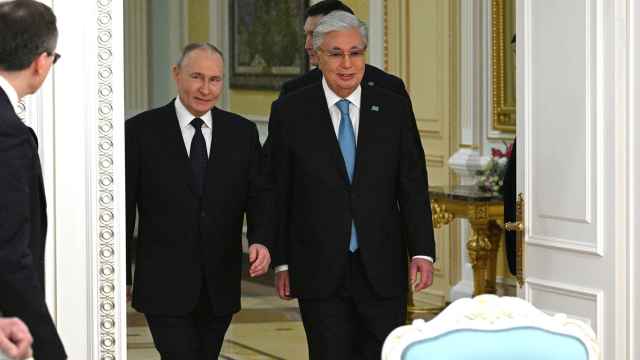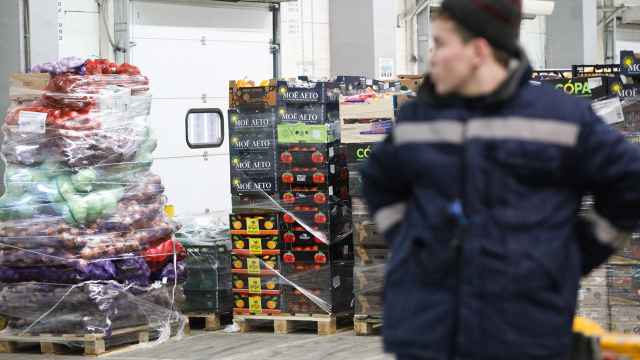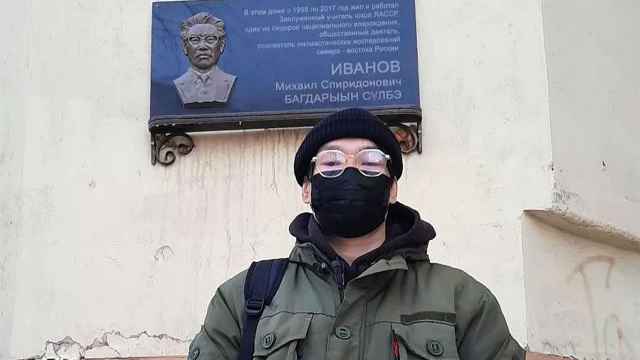The former head of Kazakhstan's domestic security agency has been detained on suspicion of treason, the agency said Saturday, after he was fired amid unprecedented unrest.
The detention of Karim Masimov, a former prime minister and longtime ally of Kazakhstan's ex-leader Nursultan Nazarbayev, was the first major move against a top official in the biggest crisis the ex-Soviet Central Asian republic has faced in years.
Nazarbayev's spokesman meanwhile denied rumours the ex-president had left the country and said he was urging Kazakhs to rally around the government.
President Kassym-Jomart Tokayev sacked Masimov earlier this week after protests over rising fuel prices erupted into widespread violence, with government buildings in the largest city Almaty stormed and set ablaze.
Authorities said Friday the situation was largely under control, but Tokayev issued a shoot-to-kill order and rejected any negotiations with protesters.
An AFP correspondent in Almaty said the city was quiet but tense on Saturday, with security forces firing warning shots at anyone approaching a central square.
Masimov, 56, twice served as Nazarbayev's prime minister and had been head of the National Security Committee, or KNB, since 2016.
The KNB said in a statement that it had launched an investigation into charges of high treason on Thursday and that Masimov had been detained the same day "on suspicion of committing this crime".
- 'Bandits and terrorists' -
It said others had also been arrested and that Masimov was being held in a temporary detention centre, but provided no further information.
Rumours have swirled of infighting among the Kazakh elite, with speculation that Nazarbayev -- who stepped down in 2019 after decades in power and hand-picked Tokayev as his successor -- had fled the country.
Tokayev also took over from Nazarbayev this week as head of the country's security council.
Denouncing those spreading "knowingly false and speculative information," Nazarbayev's spokesman Aidos Ukibay said Saturday the ex-leader was in the capital Nur-Sultan and in "direct contact" with Tokayev.
Nazarbayev "calls on everyone to rally around the president of Kazakhstan to overcome current challenges and ensure the integrity of the country," Ukibay said on Twitter.
Long seen as one of the most stable of the five ex-Soviet republics of Central Asia, Kazakhstan plunged into chaos this week, prompting Tokayev to call in troops from a Moscow-led military alliance.
In a hardline address to the nation on Friday, the president said 20,000 "armed bandits" had attacked Almaty and authorised his forces to shoot to kill without warning.
He ridiculed calls from abroad for negotiations as "nonsense", saying: "We are dealing with ... bandits and terrorists. So they must be destroyed."
The initial cause of the protests was a spike in fuel prices but a government move to lower the prices and the sacking of the cabinet failed to stop demonstrations continuing.
- More than 4,000 detained -
The violence erupted when police fired tear gas and stun grenades at thousands protesting in Almaty late on Tuesday.
The next day protesters stormed government buildings including the city administration headquarters and presidential residence, setting them ablaze, and a nationwide state of emergency was declared.
The interior ministry said 26 "armed criminals" had been killed in the unrest.
It said 18 security officers had been killed and more than 740 wounded.
More than 4,000 people have been detained, including some foreigners, according to the ministry.
On Saturday Tokayev's office said he had declared national day of mourning for Monday.
The full picture of the chaos has often been unclear, with widespread disruptions to communications including mobile phone signals and hours-long internet shutdowns.
In Almaty an uneasy calm pervaded Saturday and few people were out on the streets.
The military continued to guard the square adjacent to the mayor's office that was stormed by protesters and left badly burned, firing warning shots whenever passersby were slow to heed warnings to stay away from a checkpoint.
There were no signs of fresh fighting, but pensioner Leonid Kiselyev, 68, said his car had been hit by gunfire at around 8:30 am as he drove past the city administration, pointing to a bullet hole in the boot.
"Yesterday it was calm so I drove here," said a shaken Kiselyev, who was standing in a long queue at a petrol station where drivers were waiting for fuel to arrive.
On Wednesday Tokayev appealed for help from the Russia-dominated Collective Security Treaty Organisation (CSTO), which quickly agreed to send several thousand troops.
Military aircraft have been landing in Almaty, where the airport has been closed to civilian flights until at least Sunday, delivering Russian paratroopers and hardware.
Much of the anger appeared directed at Nazarbayev, who is 81 and had ruled Kazakhstan since 1989 before handing over power.
Many protesters shouted "Old Man Out!" in reference to Nazarbayev, and a statue of him was torn down in the southern city of Taldykorgan.
Critics have accused him and his family of staying in control behind the scenes and accumulating vast wealth at the expense of ordinary citizens.
A Message from The Moscow Times:
Dear readers,
We are facing unprecedented challenges. Russia's Prosecutor General's Office has designated The Moscow Times as an "undesirable" organization, criminalizing our work and putting our staff at risk of prosecution. This follows our earlier unjust labeling as a "foreign agent."
These actions are direct attempts to silence independent journalism in Russia. The authorities claim our work "discredits the decisions of the Russian leadership." We see things differently: we strive to provide accurate, unbiased reporting on Russia.
We, the journalists of The Moscow Times, refuse to be silenced. But to continue our work, we need your help.
Your support, no matter how small, makes a world of difference. If you can, please support us monthly starting from just $2. It's quick to set up, and every contribution makes a significant impact.
By supporting The Moscow Times, you're defending open, independent journalism in the face of repression. Thank you for standing with us.
Remind me later.






